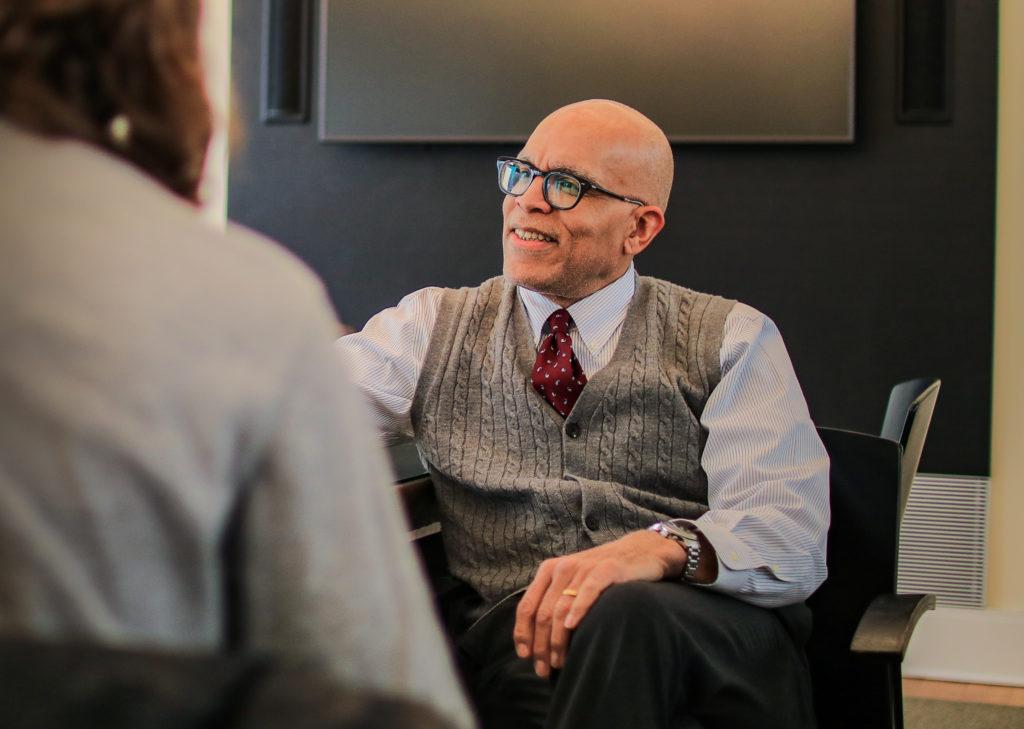
In a campus memo dated Feb. 14, the Grinnell College board of trustees announced it will renew President Raynard Kington’s contract for another three years.
Patricia Finkelman ’80, chair of the board of trustees, said that the board has been “overwhelmingly pleased with his performance” and that they never considered seeking out someone else. Finkelman said that Kington’s achievements during his tenure were “too numerous to mention,” but pointed to improvements in the Careers, Life, and Service Center, the creation of the Global Learning Program and the nearly $140 million investment in campus renewal as major positive changes which occurred under his leadership.
In recounting his experience as president, Kington said that he wasn’t sure he would be here for the full nine years. “I didn’t do anything by myself,” he said. However, he stated that he believed that he has helped the College regarding diversity and achieving the College’s mission.
Kington also said that the College has more clearly fleshed out its vision of where it stands in relation to the community. He stated that Grinnell’s unique location offers an opportunity to bridge the gap between the two worlds of academia and rural America.
“There’s never been a more important time for colleges like Grinnell to be where they are,” Kington said.
Although Kington is proud of the progress that has been made, he remains concerned about a number of issues facing the college. He suggested that a lot more could be done to create a level playing field for underprivileged students coming into Grinnell.
He also expressed concern that the campus environment sometimes fails to embrace diverse views. He said that while colleges have an obligation to make students feel comfortable enough to learn, an environment where students are never faced with uncomfortable circumstances inhibits their ability to grow.
Kington also said the way that social justice is currently discussed at the College as problematic. He said that as part of a general trend occurring in colleges across the country, the campus environment has fallen victim to a mindset that prioritizes seeking conflict with those who are deemed to be unjust over introspection. He suggested that the line between good and evil is less clear than we make it out to be and advocated for social justice of a more conciliatory nature.
Kington also said that higher education must confront the issues of rising tuition costs, as well as a K-12 education system that is largely failing underprivileged students who face an uphill battle when they matriculate to schools that are wholly unprepared to accept them and help them make the transition.
On an administrative level, Kington said that he has played a role in guiding the College towards progress on many of these problems. He cited the admission of last year’s class, which was the most diverse in College history, and mentioned efforts to create an environment where the College is able to more readily accept underprivileged students.
Kington also stated that he believes that college presidents can do more beyond the administrative level in working towards confronting these issues. He describes a paradigm shift where college presidents, formerly seen as public intellectuals that engaged in public discourse, have “every incentive not to say anything of meaning ever” in the context of a heavily polarized society. Kington, who has developed a reputation for being outspoken, sees himself as a member of the small group of presidents still willing to engage with society.
Over the next three years, Kington intends to focus on completing the humanities and social sciences building, strengthening financial and other critical services for students and consolidating investments towards diversity. He said that he hopes that the impact he leaves on the college when he departs his position “has been felt not in a sense of buildings and endowments, although that is important, but in how the College influences people’s lives.”




































































